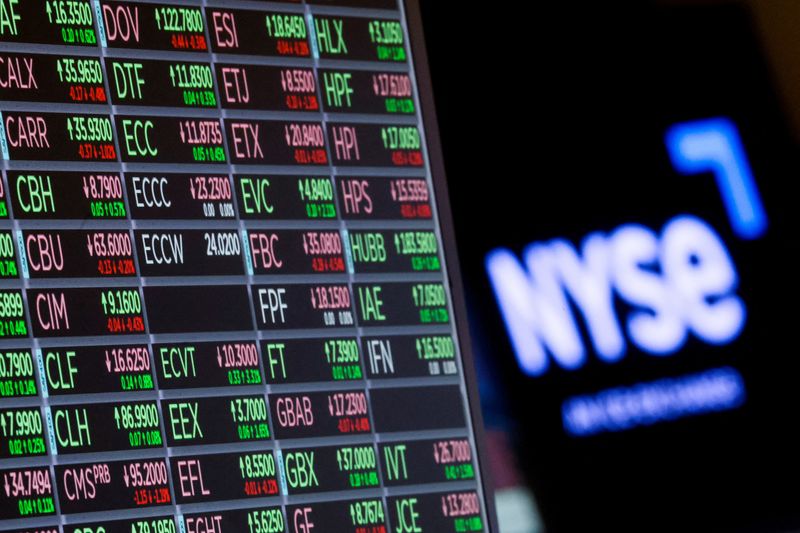By Geoffrey Smith
Investing.com -- Microsoft (NASDAQ:MSFT) is the first of the Big Tech megacaps to report earnings for the final quarter of 2022, and it's expected to show profit falling. There's a flood of other earnings to digest in the meantime, with General Electric (NYSE:GE) suffering after giving a weak outlook and Johnson & Johnson (NYSE:JNJ) coming in just ahead of expectations. Europe appears to have returned to growth, but at a price - the cost of energy subsidies and interest payments on inflation-linked debt sent U.K. government borrowing sharply higher in December. Poland puts Germany on the spot with a request to send tanks to Ukraine, while crude oil is drifting ahead of the latest U.S. inventory data. Here's what you need to know in financial markets on Tuesday, 24th January.
1. Microsoft leads earnings flood
Microsoft heads a long list of companies reporting earnings for the last quarter of 2022, on a day that’s likely to illustrate how widespread the effects of the U.S. economic slowdown are.
The software giant is expected to show a modest drop in profits despite a rise of around 8% in revenue, with the dollar’s strength eating into the profitability of its global operations.
The company will be hoping that its investment in OpenAI, the creator of the viral AI-tool ChatGPT, will sustain faith in its future growth, after signs that growth at its Azure Cloud-hosting business, the star performer of recent years, was slowing.
2. Eurozone returns to growth in January; U.K. borrowing soars
A key gauge of the Eurozone economy signaled growth for the first time in seven months, as the collapse of European natural gas prices underpinned consumer sentiment and averted a meltdown in industrial output.
S&P Global’s composite purchasing managers’ index for the Eurozone rose by more than expected to 50.2 in January, from 49.3 in December. While that may not be enough to avert a recession in itself, it adds to a growing body of evidence suggesting that any recession will be brief and shallow – thus allowing the European Central Bank to keep raising interest rates to bring inflation down more quickly.
Elsewhere in Europe, German consumer confidence rose for the fourth straight month, albeit by less than expected, while the U.K. counted the cost of its runaway inflation as the interest payments on its inflation-linked debt drove government borrowing sharply higher in December.
3. Stocks consolidate after solid gains on Monday; GE outlook dampens mood
U.S. stock futures consolidated moderately in premarket, hunkering down ahead of an incoming barrage of earnings from across the economy. That follows a day of solid gains driven by the hope of slower interest rate increases from the Federal Reserve, which holds its policy-making meeting next week.
By 06:30 ET (11:30 GMT), Dow Jones futures were down 85 points, or 0.2%, after the main cash index gained 0.8% on Monday. The picture with S&P 500 futures and Nasdaq 100 futures was similar, down by 0.3% and 0.4% respectively after gains of 1.2% and 2.0% by the cash indexes to start the week.
While Microsoft will report after the close, the early session will be dominated by updates from – among others – Johnson & Johnson, Verizon (NYSE:VZ), Danaher (NYSE:DHR), General Electric, Union Pacific (NYSE:UNP), Raytheon (NYSE:RTX), 3M (NYSE:MMM) and DR Horton (NYSE:DHI).
GE’s numbers were largely in line with expectations but the stock still fell 2.7% in premarket on the back of a weak outlook.
Also in focus later will be Amazon (NASDAQ:AMZN), after it launched a new discounted drugs service, and Alphabet (NASDAQ:GOOGL), which is reportedly facing U.S. antitrust action over its dominance of online advertising.
4. Europe closer to sending tanks to Ukraine
Poland formally requested permission from Germany to send its modern Leopard 2 battle tanks to Ukraine, pushing on a door that was opened at the weekend by Foreign Minister Annalena Baerbock.
After months of German blocking of any initiative to dispatch tanks to Kyiv, Baerbock had said Germany wouldn’t stop other countries sending their own German-build Leopards if they wanted to.
Elsewhere, NATO Secretary-General Jens Stoltenberg said he was “confident” of a broader agreement on dispatching heavy armor as aid to Ukraine “very soon.”
In Ukraine itself, President Volodymyr Zelensky dismissed a handful of regional governors amid growing signs of pressure on the government as Russia prepares for a new offensive in the spring.
5. Oil drifts ahead of API data
Crude oil prices trod water after newswire reports that the Organization of Petroleum Exporting Countries is likely to keep production quotas unchanged at its next meeting at the start of February.
OPEC and its allies have been caught between obvious signs of a rebound in Chinese demand combined with a slowdown in much of the rest of the world, notably in the U.S., where inventories have risen sharply in recent weeks. The American Petroleum Institute releases its latest weekly numbers on crude and distillate stocks at 4:30 PM ET.
By 06:25 ET, U.S. crude futures were up less than 0.1% at $81.66 a barrel, while Brent was down less than 0.1% at $88.20 a barrel.
